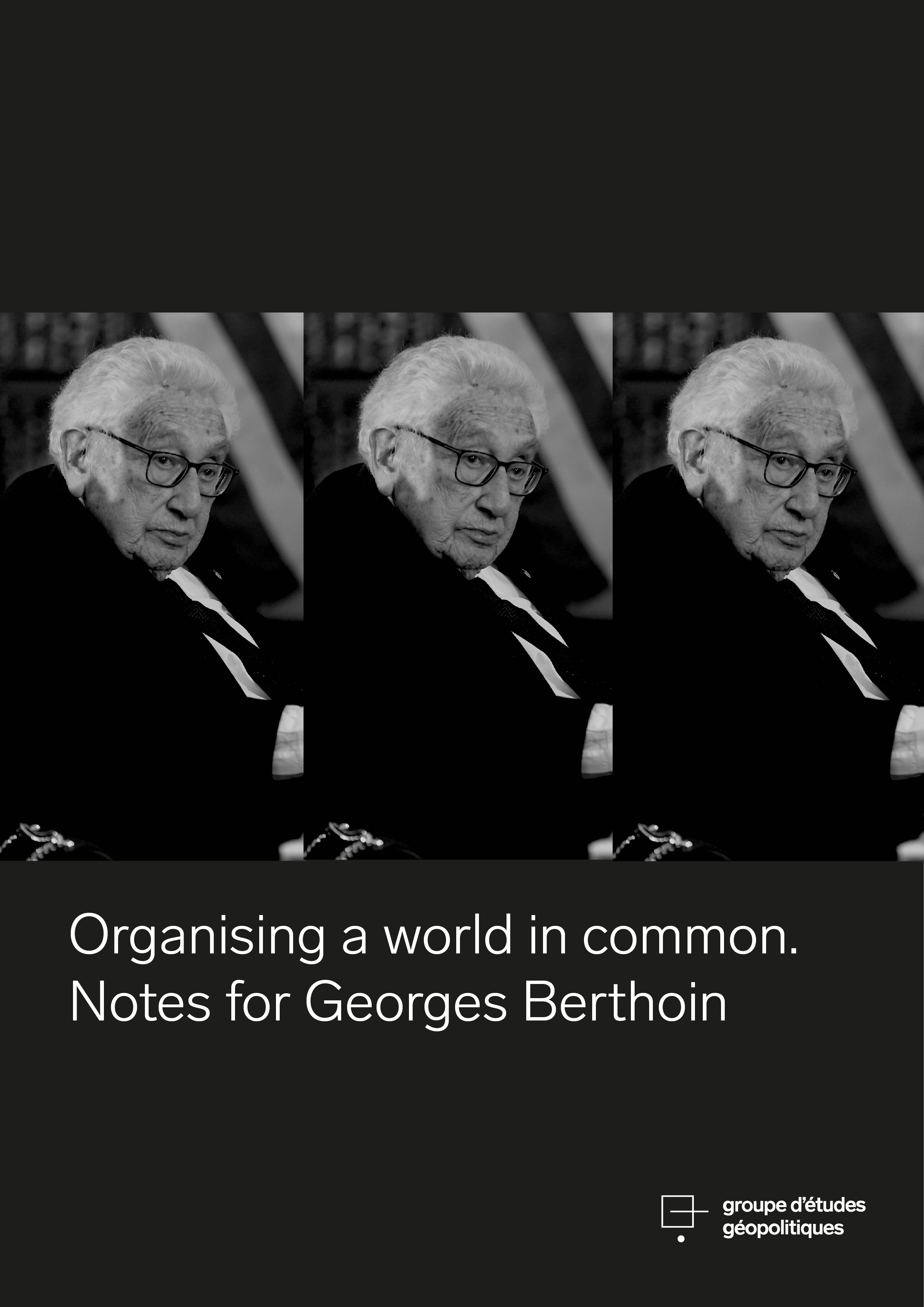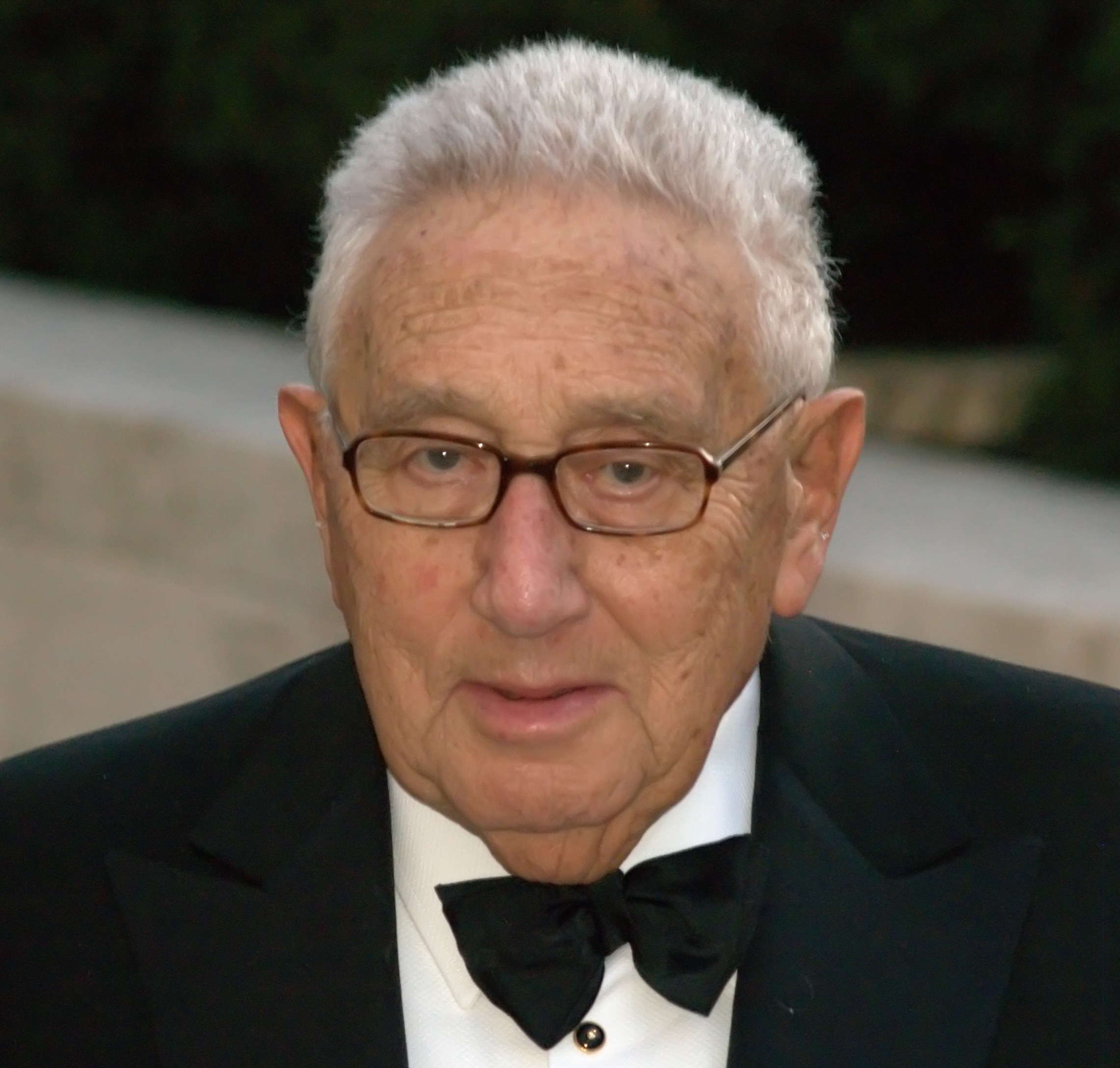Henry Kissinger: Organizing A World In Common. Notes For Georges Berthoin
Henry Kissinger
Former Secretary of State, Nobel Prize for Peace31/10/2023

Henry Kissinger: Organizing A World In Common. Notes For Georges Berthoin

Henry Kissinger
Former Secretary of State, Nobel Prize for Peace31/10/2023

 Voir tous les articles
Voir tous les articles
Henry Kissinger: Organizing A World In Common. Notes For Georges Berthoin
It is a great pleasure to join with you in celebrating my friend Georges Berthoin. I commend the Groupe d’études géopolitiques for organizing this colloquium to honor a great thinker and convener of the European and global community.
As we toasted the 25th anniversary of the Trilateral Commission in 1998, many were inclined to exalt the group’s achievements and the triumph of the West in the Cold War. But in his toast, Georges Berthoin emphasized “our responsibilities for the well-being of the world.” Georges has committed himself to carrying out those responsibilities for France, for Europe, for the Atlantic Alliance, and for international society.
To Georges, the pursuit of world order has never been a solitary endeavor. The Trilateral Commission embodied Georges’ conviction that, in his words, “adaptation to the requirements and needs of society takes place through institutions.” As the Trilateral Commission’s long-serving European Chairman, Georges helped build an important institution for adapting to a multipolar world.
Georges early recognized the need for such a group, because he has always been attuned to what he calls the “psychological dimension” of foreign policy. His service as private secretary to the French Finance Minister during the Marshall Plan helped him recognize that world order and economic development are not purely technical problems, but spiritual ones as well. To paraphrase Georges, grand designs of foreign affairs must respect the dignity and sovereignty of nations. “That requires very fine political and psychological tuning,” Georges has said. Many leaders have been fortunate to benefit from Georges’ counsel in “tuning” policy throughout the postwar period.
With his intuitive feel for the imponderables of international affairs, Georges’ proposals have always been strategic. Working as the principal private secretary to Jean Monnet, Georges learned that even the most visionary concepts, like the European Community, will not supply their own execution. Georges has been forever assembling groups of distinguished experts to design thoughtful solutions to the most pressing problems.
I remember well a trip with Georges and David Rockefeller to the Soviet Union in January 1989 to meet with Mikhail Gorbachev and other Soviet leaders. As the Soviet Union collapsed, Georges warned the West that “the most difficult moment in a war, for the victorious powers, is the victory,” which requires “transforming short-term aid into a long-term strategy.”
In his prescient proposals, Georges has always respected history but understood the need to transcend it. “If we indulge in historical reminiscence,” he told his fellow Trilateral members after the Soviet Union’s implosion, “we are bound to see each other as enemies.” Looking forward, he declared: “We cannot change the past which led to battles. But we can change the future, and create conditions where interdependence as a fact of life can be properly managed and respective sovereignties can adapt themselves to modernity.” Three decades after the fall of the Soviet Union, Georges’ call for a better future has proven all the more urgent as Europe faces a major war on its eastern border and searches for an enduring order.
Georges’ mentor Jean Monnet once claimed that he only had one idea in all his life. But he refused to divulge what that idea was. According to a recent biographer, Monnet’s memoirs may have revealed the answer when he quoted his friend Antoine de Saint-Exupéry, the aviator and writer: “Man’s finest profession is that of unifying men.” Georges Berthoin has devoted his life to unifying men and excelled in that “finest profession.” I extend my friendship to Georges and my gratitude to the organizers of this important colloquium in his honor.
citer l'article
Henry Kissinger, Henry Kissinger: Organizing A World In Common. Notes For Georges Berthoin, Oct 2023,




